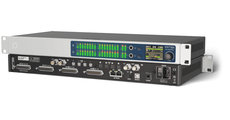The RME M-1620 Pro D converts 16 analog line-level signals (per channel switchable up to +24 dBu) to and from MADI, ADAT and Dante network technology. This innovative unit is designed with a newly developed front panel that combines LED level meters with a display and includes two separate headphone outputs for monitoring - all within a single-height 19-inch rack device. Cutting-edge converters and flexible internal routing place it at the forefront of any audio network.
Simplicity at first glance - Flexibility and reliability beyond
RME prioritizes reliability by equipping the M-1620 Pro with built-in redundancy. This includes dual network and dual MADI connections, along with a monitored DC input in addition to the internal AC power supply. A unique system clearly signals when an issue arises, ensuring seamless operation. With full stand-alone capability, users can adjust device settings directly on the unit for quick modifications or to recall entire user-defined presets.
Responding to frequent requests, the M-1620 Pro D integrates 64 channel Dante connectivity, providing direct links to other audio devices via standard ethernet switches. If redundancy is not required, the device can act as a switch itself and allow daisy-chains of several Dante devices. Users can record and playback up to 64 channels of any of the M-1620’s analog and digital I/O on their computer using Audinate’s Dante Virtual Soundcard™ (license not included).
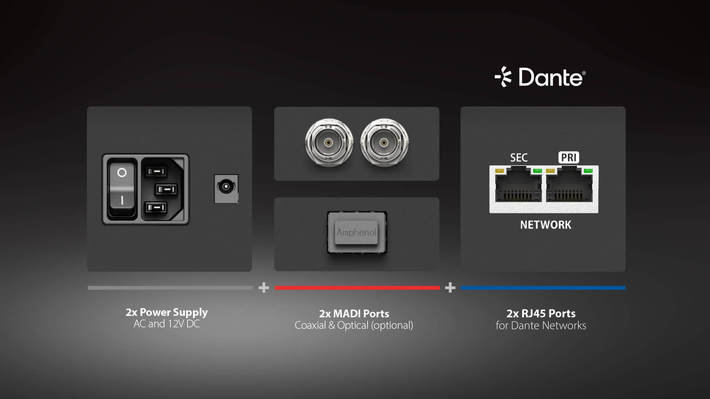
Multiple layers of redundancy make the M-1620 Pro Series a perfect companion for any kind of live sound application.
Add Analog and DANTE I/O to any existing MADI devices
The M-1620 Pro allows manual configuration of the converter’s aliasing filters for optimal impulse and frequency response. Jitter on digital input signals is effectively reduced with SteadyClock FS. Separate Word Clock BNC and coaxial MADI connectors, with optional optical MADI via an SFP module, allow the device to be easily integrated into existing infrastructure.
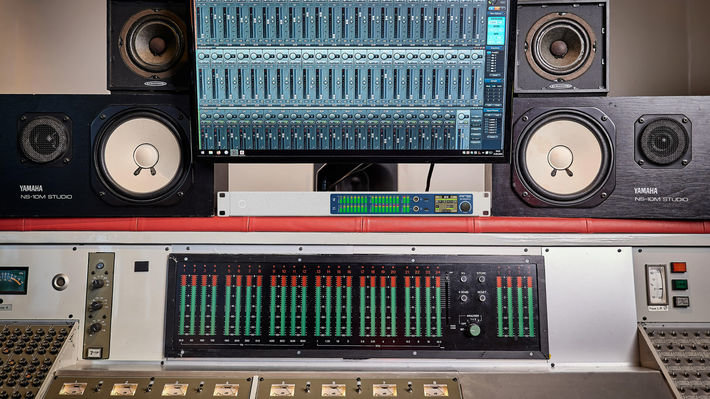
Perfect for recording engineers using a variety of analog effects and instruments.
Plug & play - rapid user interaction
Control all device states directly from the front panel for convenient, direct access to all features. RME network audio devices can be reached over network (including wirelessly over Wi-Fi) and USB for convenient remote access, allowing the rapid creation of gain groups, phantom power switching and clock configuration. In addition, a JSON based API and even SysEx MIDI commands can be used to integrate each model virtually anywhere. The integrated routing matrix allows single channel routing across all analog and digital I/O. As such, problem-solving of signals, clocking, connectivity or other issues is both simple and straight-forward!
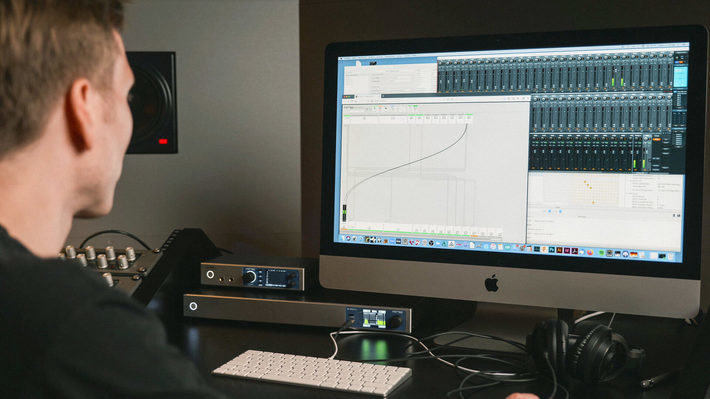
Direct access to all features via the web-interface on any network
More Outstanding Features
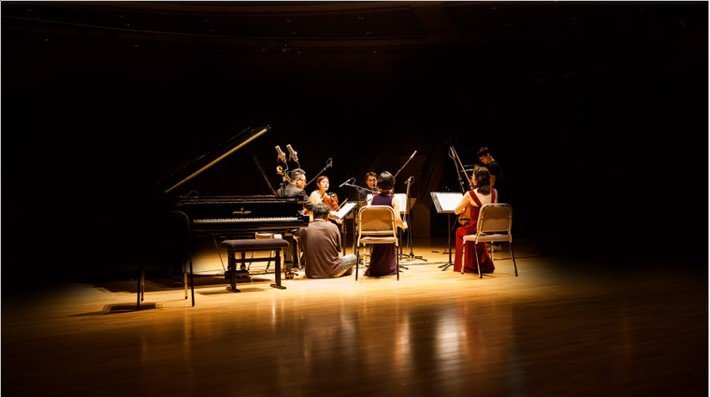
About MADI - Multi Channel Digital Audio Protocol
MADI is a protocol that has evolved alongside RME to be the most widely accepted multi channel digital audio protocol on the market. RME’s MADI-based systems deliver incredible reliability, particularly in applications where failure is not an option.
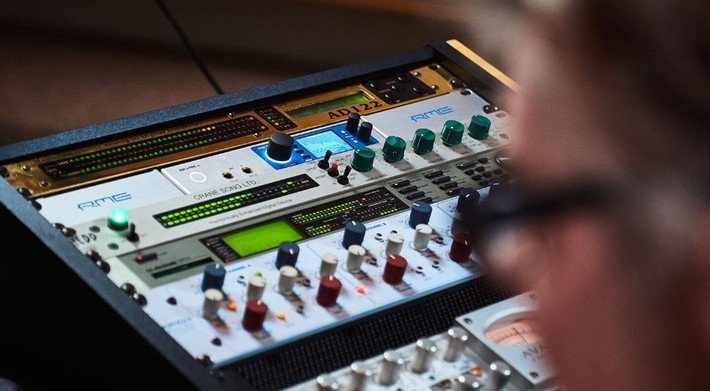
SteadyClock FS - Reference class Digital Clocking
Excellent performance in all clock modes and High Quality Analog Conversion to hear your mix as it is, with lowest jitter and highest jitter immunity.
Accessories
Optical MADI SFP Module (optional available)
This module extends compatible RME devices with an optical SFP transceiver. Up to 64 audio channels can then be sent to and received from other MADI devices. THE RME SFP module is available in a Multi-Mode and in a Single-Mode version, it can be inserted and removed while the RME MADI device is powered on. It is not necessary to power down the device.


